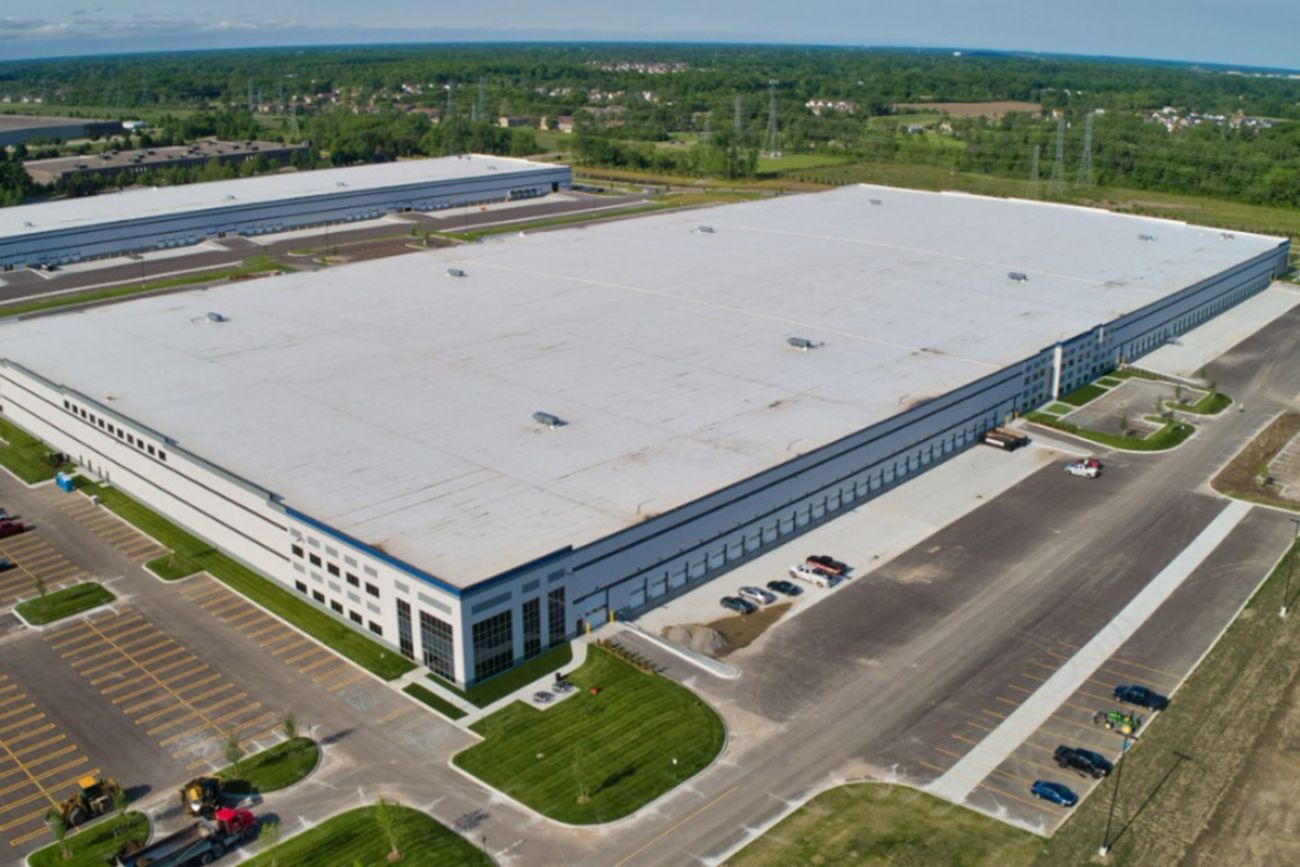Michigan lands two more EV battery plants, bringing up to 4,000 jobs

- Two companies announced plans to open new Michigan-based electric vehicle battery plants, valued at $4 billion
- Together, the plants in western Wayne County and Big Rapids could bring more than 4,000 jobs
- State leaders say funding incentives fueled four new EV battery plants in the state so far this year
Our Next Energy and Gotion on Wednesday committed to opening electric vehicle battery plants in Michigan bringing the year's total gain to four. Business leaders say the move will give the state an edge in retaining auto manufacturing as the industry electrifies.
The new plants, valued at $4 billion, will be located near Big Rapids and in western Wayne County. Previously announced projects by General Motors and LG Energy Solutions would be near Lansing and Holland. Collectively, the four projects could add about 7,300 new advanced-manufacturing jobs and an estimated EV battery investment of $8.5 billion to the state.
Related:
- Michigan approves $846 million in aggressive bid to attract new business
- Michigan wants to lead U.S. in electric vehicles. Ford turned elsewhere.
- Whitmer: Michigan can take lead in electric vehicle highway, job training
“This is critical for the future of Michigan,” Mike Johnston, executive vice president of government affairs for the Michigan Manufacturers Association, told Bridge Michigan.
“This is an important year because we're in such a crucial moment in time with the transition from internal combustion engines to electric vehicles.”
At the same time, Michigan is contributing about $1.3 billion in incentives to the large-scale projects in the form of performance-based grants, workforce development and local tax-free zones created.
“This is yet another historic day for Michigan this year as we continue to secure generational opportunities in our manufacturing and engineering workforce (and) grow a sustainable economy,” Gov. Gretchen Whitmer said as she announced the new projects from Grand Rapids on Wednesday.
Our Next Energy, known as ONE, is a Novi-based battery storage company founded in 2020 that plans to operate a new $1.6 billion factory in Wayne County’s Van Buren Township, near Interstate 275.
ONE plans to build long-range batteries for customers, including BMW. It forecasts the new plant will create about 2,112 jobs and lead to an expansion of its headquarters.
The company also has a unique process, company spokesperson Sydni Williams told Bridge Michigan in an email. She said ONE will be the first U.S. company to develop material supply chains to commercialize battery cells based on iron-based chemistries instead of nickel and cobalt, which are more difficult to obtain.
“This factory announcement marks the birth of an emerging trend away from cell factories that make nickel and cobalt based cells,” she said.
Gotion, the other EV battery producer that announced a new Michigan factory on Wednesday, said it plans to move forward with a $2.36 billion facility near Big Rapids in Mecosta County.
The 1.1 million-square-foot project, which received tax-free-zone approval from the county, is expected to create 2,350 jobs.
“We are dedicated to bringing world-class lithium battery production to North America and delivering high-quality products to our customers in a timely fashion,” Chuck Thelen, vice president of Gotion Global, said in a statement.
Incentives helped attract investments
The state also committed to providing ONE and Gotion with financial incentives, as it did with GM and LG Energy Solutions earlier this year. The Michigan Strategic Fund, the funding arm of the Michigan Economic Development Corp., approved the offers on Wednesday.
ONE will receive $200 million from the Strategic Outreach And Attraction Reserve (SOAR) Fund, a $21.65 million personal property tax exemption and a $15 million construction loan to aid in the completion of the building, which Ashley Capital built.
Along with tax-free-zone status, Gotion will receive a $125 million “critical industries program” grant from the SOAR fund and $50 million for site development and improvements.
The most recent incentives come a week after officials added $640 million to its fund for large project development, bringing available funds to $846 million.
Michigan ended its 2021 legislative year by creating the SOAR fund with an initial $1 billion investment, saying it needed the funding to compete with states that aggressively pursue the estimated $500 billion in expected U.S. investments in electric vehicles in the next decade as the auto industry expands its footprint.
Johnston, of the MMA, said the incentive fund helped secure the types of battery deals that other states “have been very successful in attracting.” Kentucky and Tennessee are each developing battery plants for Ford Motor Co., with a combined value of $11.4 billion.
“Without the SOAR fund, Michigan would not have even been on the map” for transformational projects like the Gotion and ONE battery plants, he said.
The jobs at the battery plants may also help attract other companies and people to Michigan, he added.
“This is about growing the state and growing population,” he said.
Not everyone is happy
Others are critical of the tax incentives.Tudor Dixon, Republican candidate for governor, said last week that she supports the states efforts to pay for site readiness, which the SOAR fund also does.
However, she also said giving incentive money to California-based Gotion, which is a subsidiary of the Chinese Gotion High-Tech Co., amounted to “corporate welfare.”
“The fact that Gretchen Whitmer is lining the pockets of foreign companies with Michigan taxpayer money is absurd,” Sara Broadwater, Dixon’s spokesperson, told Bridge on Wednesday. “There are many better uses for hundreds of millions of dollars in taxpayer cash.”
The Gotion deal “is the latest example of government officials making decades-long bets that commit our cities, counties and state to a particular future that’s far past their ability to predict,” John Mozena, president of the Center for Economic Accountability, told Bridge in an op-ed submitted on Wednesday. The Michigan-based nonprofit encourages accountability and transparency in economic development.
“Rather than going all-in on a few speculative megadeals, let’s make it as simple and affordable as possible to start and run a good business that creates good jobs in Michigan,” Mozena said.
Business Watch
Covering the intersection of business and policy, and informing Michigan employers and workers on the long road back from coronavirus.
- About Business Watch
- Subscribe
- Share tips and questions with Bridge Business Editor Paula Gardner
Thanks to our Business Watch sponsors.
Support Bridge's nonprofit civic journalism. Donate today.
See what new members are saying about why they donated to Bridge Michigan:
- “In order for this information to be accurate and unbiased it must be underwritten by its readers, not by special interests.” - Larry S.
- “Not many other media sources report on the topics Bridge does.” - Susan B.
- “Your journalism is outstanding and rare these days.” - Mark S.
If you want to ensure the future of nonpartisan, nonprofit Michigan journalism, please become a member today. You, too, will be asked why you donated and maybe we'll feature your quote next time!




